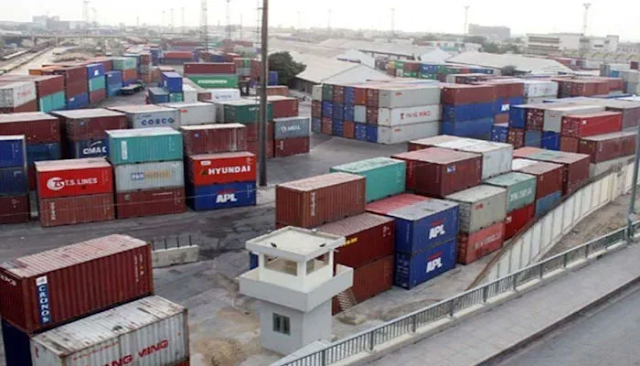Unmasking the Economic Menace: Pakistan's Struggle with Rs8 Trillion Tax Loss Due to Illicit Trade
Pakistan, a nation with a rich cultural heritage and a rapidly evolving economy, finds itself grappling with a formidable adversary - illicit trade. The Pakistan Business Council has recently sounded the alarm, revealing that the country is hemorrhaging an astonishing Rs8 trillion annually due to this clandestine activity. The scale of this issue is further magnified by estimates that illegal trade accounts for a staggering $68 billion, equivalent to 20% of the formal economy.
Understanding Illicit Trade:
Illicit trade encompasses a wide array of activities, including smuggling, counterfeiting, tax evasion, and other forms of underground commerce that operate outside the purview of regulatory frameworks. In the Pakistani context, this underground economy has become a formidable force, siphoning off a significant portion of the country's potential tax revenue.
Root Causes of Illicit Trade:
Several factors contribute to the rampant illicit trade in Pakistan, forming a complex web of challenges for the authorities. Chief among them are:
1.Weak Regulatory Mechanisms:
Inadequate regulatory frameworks and enforcement mechanisms provide fertile ground for illicit trade to thrive. Gaps in legislation and lax enforcement allow unscrupulous actors to exploit loopholes, evading taxes and engaging in illicit activities with relative impunity.
2.Corruption:
Corruption within the system acts as a catalyst for illicit trade. Collusion between smugglers, counterfeiters, and corrupt officials enables the illicit trade network to operate seamlessly. Tackling corruption at all levels is crucial for dismantling these networks.
3.Inefficient Border Controls:
Geopolitical factors, porous borders, and inadequate surveillance contribute to the smuggling of goods across borders. Strengthening border controls and international cooperation is imperative to curb the influx of illicit products.
4.Lack of Public Awareness:
Insufficient awareness among the general public about the economic repercussions of illicit trade can inadvertently contribute to its growth. Educating the public about the adverse effects of purchasing smuggled or counterfeit goods is essential in curbing demand.
Consequences of Illicit Trade:
The consequences of Pakistan's Rs8 trillion tax loss due to illicit trade are far-reaching and multifaceted:
1.Economic Deterioration:
The drain on tax revenue exacerbates fiscal challenges, hindering the government's ability to invest in essential public services, infrastructure, and social welfare programs.
2.Undermined Legitimate Businesses:
Illicit trade creates an uneven playing field for legitimate businesses, as they struggle to compete with underground enterprises that operate without the burden of taxes and regulations.
3.Compromised National Security
The unchecked flow of illicit goods across borders poses a threat to national security, as these activities often fund criminal and terrorist organizations.
4.Erosion of Trust:
The prevalence of illicit trade erodes public trust in institutions and undermines the integrity of the formal economy. This, in turn, hampers foreign investment and economic growth.
Addressing the Issue:
Addressing the Rs8 trillion tax loss due to illicit trade requires a comprehensive and coordinated effort from all stakeholders. Key strategies include:
1.Reforming Regulatory Frameworks:
Strengthening and updating existing regulatory frameworks to close loopholes and improve enforcement mechanisms is critical. Regular reviews and amendments can help adapt to evolving challenges.
2.Anti-Corruption Measures:
Implementing robust anti-corruption measures and promoting transparency within government institutions will help dismantle the collusion between illicit traders and corrupt officials.
3.Enhanced Border Controls:
Investing in technology and manpower to bolster border controls and international cooperation is essential. This will help stem the flow of smuggled goods and illicit trade across borders.
4.Public Awareness Campaigns:
Launching targeted public awareness campaigns to educate citizens about the economic, social, and security implications of supporting illicit trade can play a pivotal role in reducing demand.
The staggering Rs8 trillion tax loss that Pakistan suffers annually due to illicit trade is a wake-up call for the nation. Addressing this issue requires a concerted effort from the government, businesses, and the public. By implementing comprehensive reforms, strengthening regulatory frameworks, and fostering a culture of compliance, Pakistan can reclaim its lost revenue, fortify its economy, and pave the way for sustainable growth.



Comments
Post a Comment